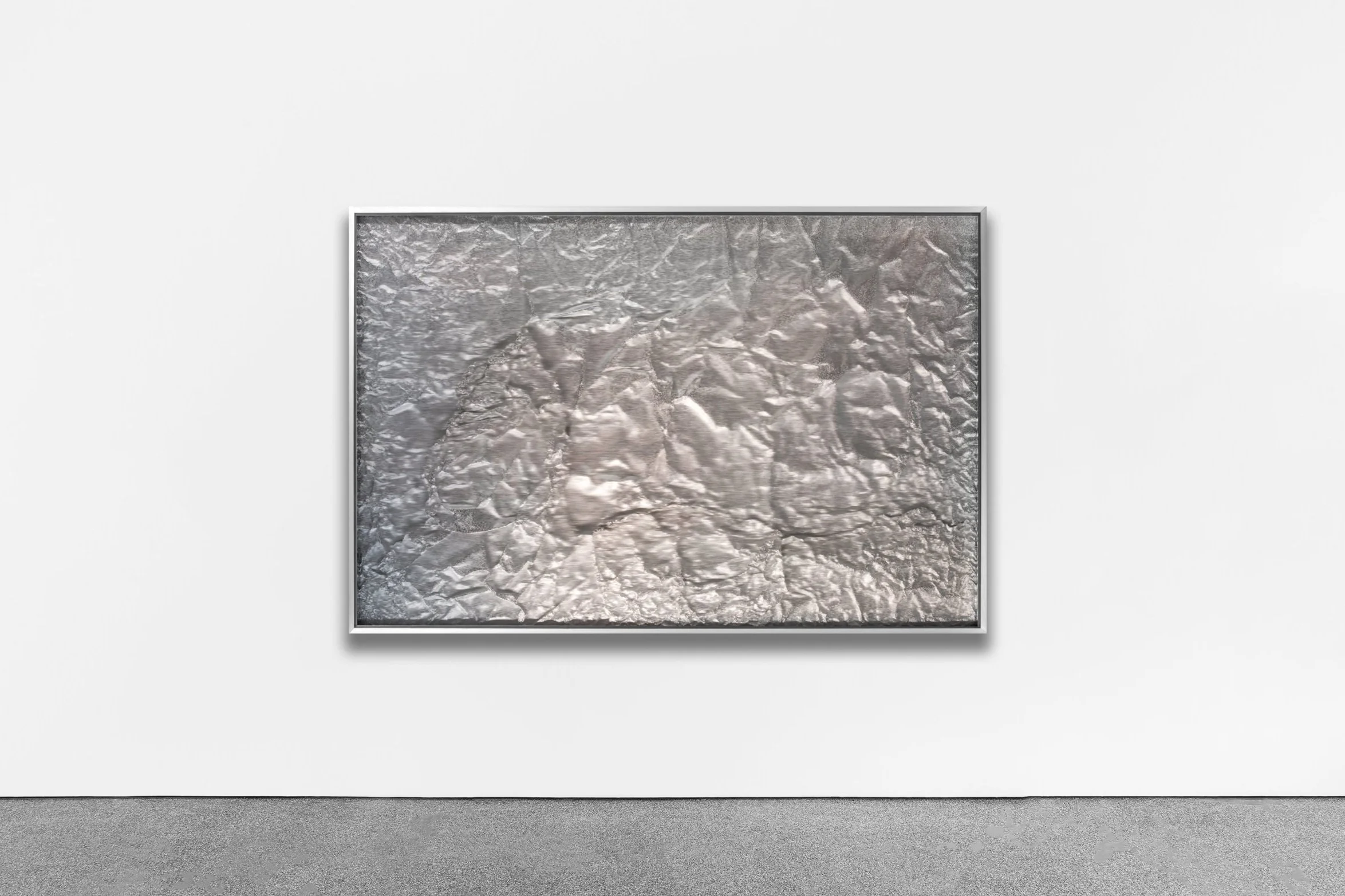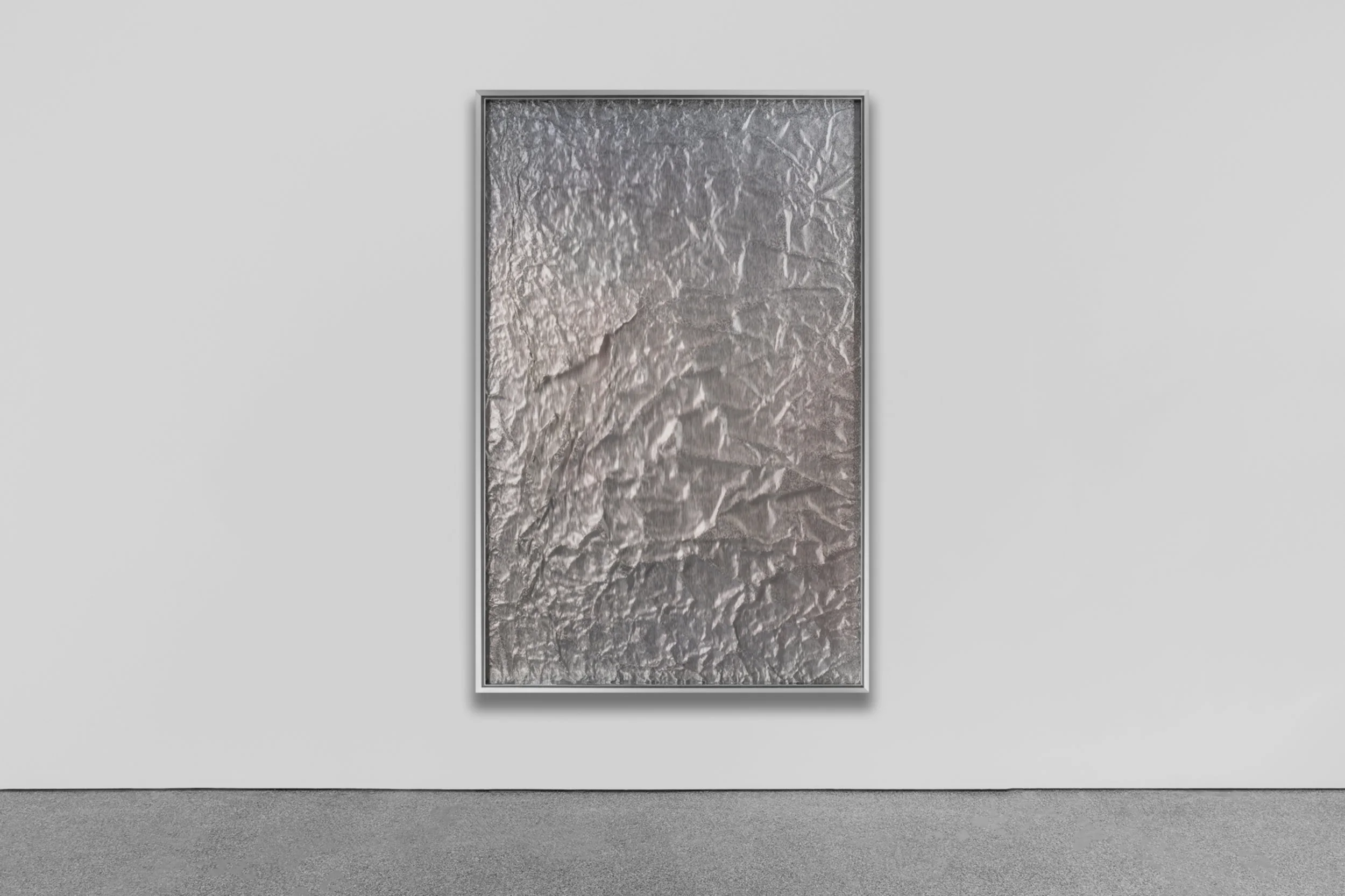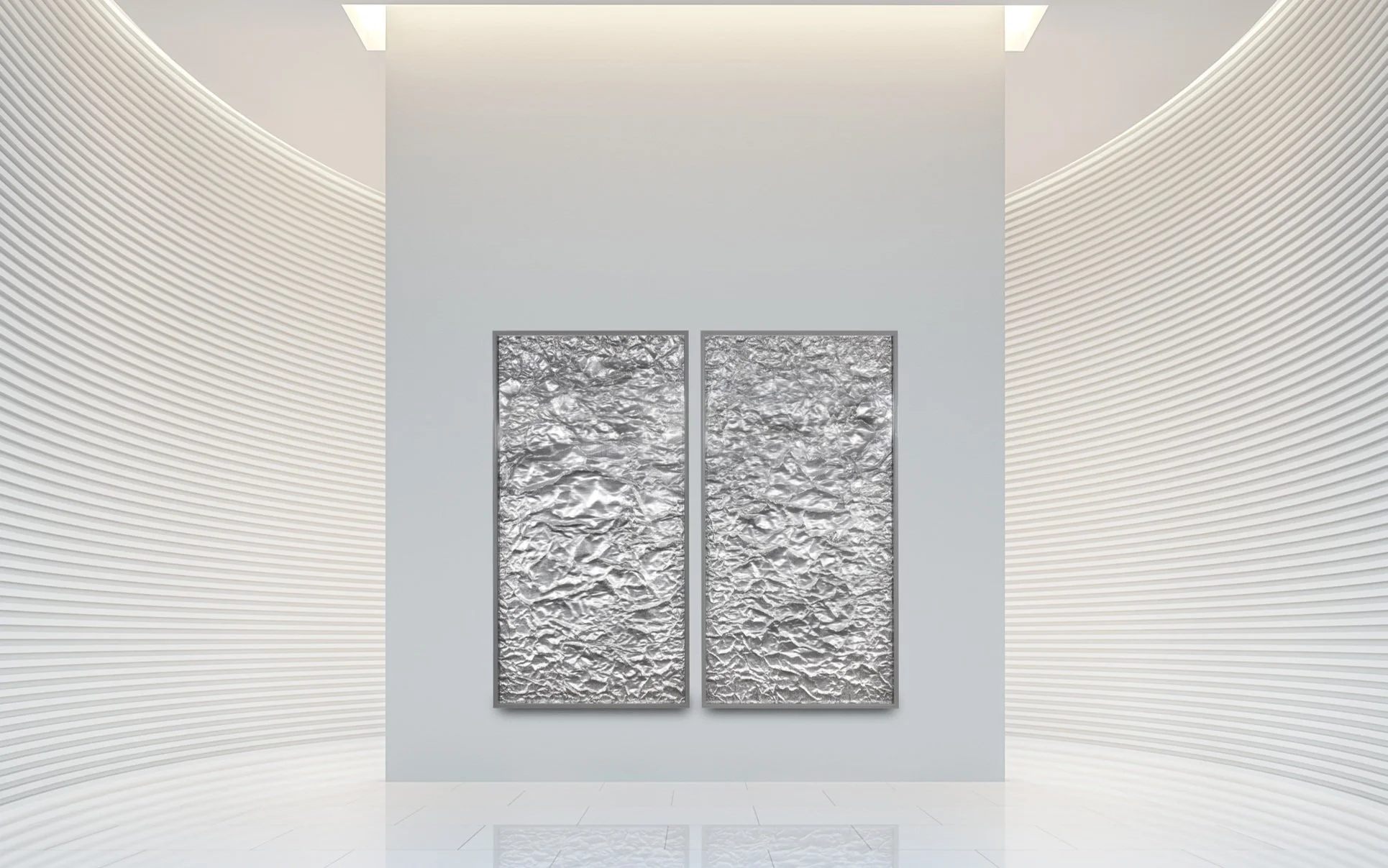Tabula Rasa
2016 - 2018
“Tabula rasa” (Latin for "blank slate") in epistemology and psychology refers to the empiricist belief that the human mind starts as a blank slate, shaped by sensory experiences. In contrast, continental rationalism, particularly through René Descartes, asserts the existence of innate ideas—such as mathematical principles and the concept of God-placed in the mind at birth by a divine source.
Proponents of tabula rasa, like John Locke in his An Essay Concerning Human Understanding (1689), argue against innatism, suggesting that the mind initially resembles “white paper, void of all characters,” and that all knowledge comes from experience. Locke found no evidence for pre-existing ideas in the mind, advocating instead that the mind develops its contents entirely through sensory experiences.
In this series, these opposing principles are explored and questioned. Chinese calligraphy Xuan paper, placed beneath linear Plexiglas, serves as a metaphor for the mind. Just as the mind starts as a blank slate, the paper awaits the calligrapher’s touch to imprint knowledge. The Plexiglas represents the lens through which ideas are gradually assimilated. Sheets of aluminium foil and dichroic film also feature prominently, symbolizing alternative pathways for cognition. The reflective foil and the colour-shifting dichroic film represent the dynamic processes of perception and understanding. Thus, while the calligraphy paper symbolises a mind absorbing new information, the reflective and colorful materials illustrate the various conduits through which cognition occurs.


















